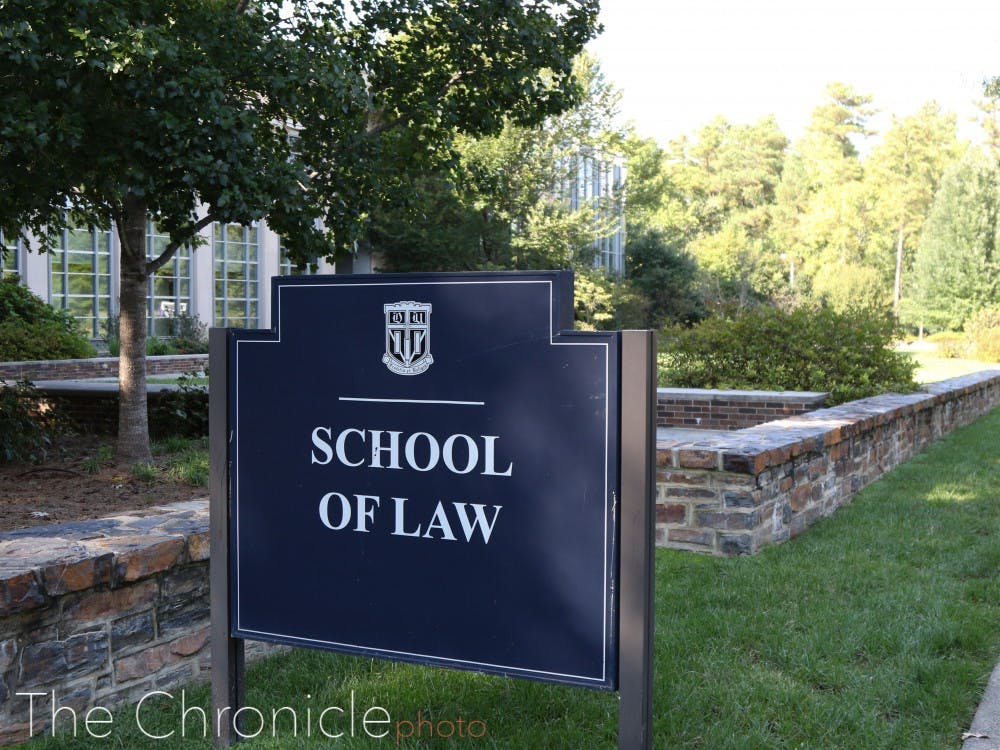A proposed ordinance will charge Durham shoppers a 10-cent fee for paper and plastic take-out bags, and a Duke Law clinic played a key role in drafting its language.
The Durham Environmental Affairs Board endorsed the ordinance—which was proposed by the nonprofit organization Don’t Waste Durham—in August. The Environmental Law and Policy Clinic at Duke Law School, a partnership between the law school and the Nicholas School of Environment, provided representation and research in order to convince lawmakers to support the proposal.
Crystal Dreisbach, executive director of Don't Waste Durham, said that the fee is the best way to shift people's mindsets and create sustainable behavioral change, leading more people to bring reusable bags. The fee would target shoppers who use single-use paper and plastic take-out bags, but excludes those who participate in public assistance programs like food stamps or WIC benefits.
"It's very well-grounded in research that proposing a fee on something creates an economic signal for consumers that directly converts to behavior change," she said. "This [fee] is more effective than say a ban, an incentive program."
The ordinance targeted both plastic and paper bags because they both pose an array of environmental and economic problems, Nowlin explained.
According to Nowlin, plastic doesn't decompose and is often improperly disposed of, ending up "in the sediments of our creeks, in our drinking water, in our reservoirs and in fish tissue." Producing paper bags can “take up just as many and oftentimes more resources from the Earth” than the same for plastic bags, Dresibach said.
The clinic also has conducted studies to predict the impact of the ordinance on the Durham community. For example, one research project aimed to “quantify the economic and social impact of plastic bags,” said Nancy Lauer, an environmental policy fellow of the Environmental Law and Policy Clinic. It also surveyed business owners to gauge their attitudes toward the proposal.
“We were able to survey almost 40 businesses—grocery stores, convenience stores, general retail stores, takeout places—and we found in this survey that the vast majority of them were supportive of the idea of a fee on bags,” Lauer said. “There was really overwhelming support.”
Members of the clinic anticipated potential pushback about whether Durham has the authority to enact a fee. Accordingly, Nowlin said that the clinic compiled research that found that, under the state's Solid Waste Management Act, local governments have considerable discretion in taking steps to reduce waste.
The next step for the clinic, since the board has endorsed the ordinance, is to meet with representatives of the city council and the city manager's office to create a plan for a formal vote in the upcoming months, Nowlin said.
In the meantime, she said the clinic will be doing additional research and expanding upon the survey on business attitudes.
The ordinance has already influenced other cities in North Carolina to pass similar environmental policies, Nowlin noted. She said that she sees Durham as a laboratory to test solutions to environmental problems, and that individual communities should take distinctive measures that will have a “meaningful and beneficial impact on our public resources.”
“Just [recently], the Fayetteville city council decided to stop buying Styrofoam, and they’re working on banning it in their city. Asheville is doing the same,” she said. “So I think Durham is really starting something, as we often do.”
Get The Chronicle straight to your inbox
Signup for our weekly newsletter. Cancel at any time.

Mona Tong is a Trinity senior and director of diversity, equity and inclusion analytics for The Chronicle's 117th volume. She was previously news editor for Volume 116.

